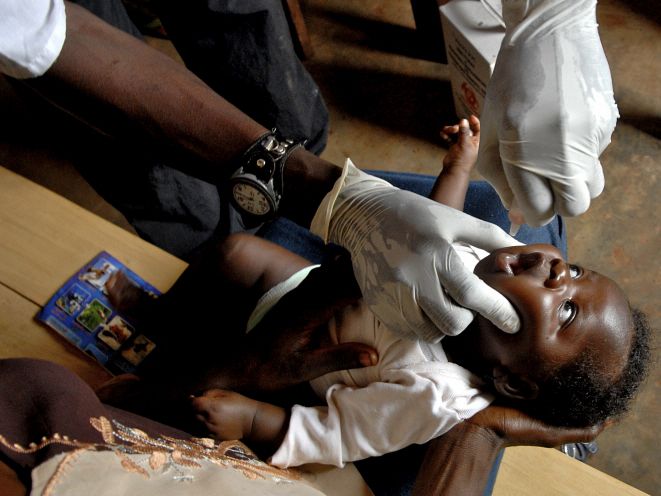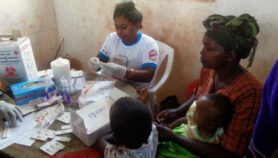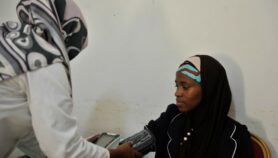By: Michael Allen
Send to a friend
The details you provide on this page will not be used to send unsolicited email, and will not be sold to a 3rd party. See privacy policy.
Single doses of oral cholera vaccine (OCV) could prevent more cases and deaths than the recommended double dose when the vaccine is in short supply, according to a study.
A single-dose strategy gets as much vaccine into the population as quickly as possible, the authors of the study say, explaining that the dosage protects more people from infection, even if it provides less individual immunity.
In the study, published in PLOS Medicine on 25 August, the researchers from France, Switzerland and the United States used mathematical modelling to estimate the threshold — called minimum relative single-dose efficacy — of 57 per cent for single-dose vaccination campaigns that occur after an outbreak has begun to equal or exceed that of the recommended two-dose campaigns.
“One dose is most appropriate when inadequate vaccine or logistical constraints prevent vaccinating the entire target population with two doses.”
Justin Lessler, Johns Hopkins Bloomberg School of Public Health
Using the threshold, the researchers estimated that single-doses of OCV administered to half the population of Port-au-Prince, the capital of Haiti, after the 2010 earthquake in that country would have prevented 78,317 cases of cholera and 738 deaths – five per cent more than a double-dose campaign using the same amount of vaccine.
A similar strategy in the 2008-2009 cholera epidemic in Zimbabwe would have prevented 70,854 cases or 16 per cent more than a double-dose regimen, according to the researchers.
Justin Lessler, a co-author of the study and an epidemiologist at the US-based Johns Hopkins Bloomberg School of Public Health, adds: “Based on the best available evidence, one dose is most appropriate when inadequate vaccine or logistical constraints prevent vaccinating the entire target population with two doses and a cholera epidemic is eminent or underway.”
Louise Ivers, an expert in global health at the US-based Harvard Medical School, who was not involved in the study, commends the study.
“We do not know a lot about the efficacy of a single dose in the 'real world' setting, but this paper contributes to our hypothetical understanding of how a single dose might be useful” Ivers explained. “In a crisis, limited availability of vaccine is likely to be even more pronounced, since production cannot be scaled up rapidly, so evaluating the possible uses of single dose strategies is important and useful.”
Cholera, caused by the bacterium Vibrio cholerae, is a significant problem in Africa. Between 1 January and 3 May this year, there were cholera outbreaks in 14 of the 47 countries who reported to the WHO African region, resulting in 20,058 cases and 289 deaths, says a report by the WHO’s Regional Office for Africa.
The report adds that 90 per cent of the cases came from four countries: Democratic Republic of Congo, Kenya, Mozambique and Nigeria.
Médecins sans Frontières (MSF), the WHO and the South Sudan Ministry of Health conducted an eight day single-dose vaccination programme that reached an estimated 138,440 people.
Christine Jamet, MSF programme manager for South Sudan, told SciDev.Net that a single-dose strategy was used in South Sudan because of the limited OCV doses available and many cholera cases in Juba.
This article has been produced by SciDev.Net's Sub-Saharan Africa desk.
References
Andrew S. Azman and others The impact of a one-dose versus two-dose oral cholera vaccine regimen in outbreak settings: a modeling study (PLOS Medicine, 25 August 2015)














